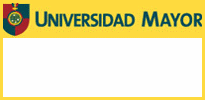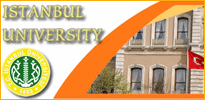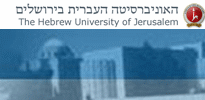Rwanda: Rwanda Education Profile 2012
2012/03/28
Rwanda Education Profile 2012
The World Bank has estimated that 71% of primary school-age Rwandans attended school in 1992, compared with 68% in 1970. Many primary and secondary schools were looted or physically damaged in the war, and many teachers were killed or forced to flee. Primary education has largely recovered since the crisis, and is benefiting from international assistance, particularly from the EU. In 1996 nearly one million primary school students and 40-45 thousand secondary school students were enrolled. Schooling takes 14 years altogether: eight years of primary school and six years of secondary school. The academic year runs from September to July. Until the new government, instruction had been conducted in Kinyarwanda at lower grades and French at higher grades. To accommodate students with Ugandan origins, the new government has introduced English to supplement French as the language of instruction. Some allowance is also made for the use of Swahili, particularly in exams.
The National University of Rwanda at Butare was established as an autonomous, public institution in 1963 by the government and the Roman Catholic Dominican Order of Canada. It was closed during the conflicts of the last decade but reopened after the war's end.
Ministry of Education
Education Finance
Education accounts for 15% of the national budget of which 9.5% is allotted to H.E.
In 2003 the state's total expenditure on education was 48 Billion Rwandan Francs (£48.6 million or $86m).
Between 1996 and 2001 total public spending rose from 3.2% to 5.5%. However much of this was chanelled in to Secondary and Tertiary education at the expense of Primary.
Standards in Education
- The following bodies oversee educational standards
- - Division of Construction and equipment
- * Sets standards for classroom/school construction.
- - National Examination Council
- * Sets standards for grades and progression to the next stage of education.
- - Department of planning
- * Sets and monitors standards on system performance indicators.
- - General Inspectorate of education
- * Inspects and advises on standards adherence and compliance.
Higher Education
There are 20 high education institutes (6 Public / 14 Private). The first university in Rwanda (National University of Rwanda - NUR) was opened by the government in 1963. 49 students enrolled initially at NUR. but by the 99/00 this had risen to 4550. In 1997/98 Rwanda had a total of 5,571 students in higher education. Today this stands at 26,796, 39% of students are female.
Throughout the Higher Education system some 100 PhDs are held, the bulk of them at NUR. Areas of research include agriculture, livestock and the training of farm managers. A system of 'universités du soir' (Night School University) has been established to widen access to university. However, there has been some debate of over the quality of courses being offered.
Rwanda's higher education sector has some way to go in developing the internal efficiency. In 2000/01 final year students were graduating with a success rate of between 11 and 50%. Across all years this success rate is 53 to 76%.
ICT in Education
The Rwandan government has formed a national ICT strategy which aims to link public Higher Education Institutions and later Private Institutions via a RWEDNET. There is also a hope that with assistance this can be expanded to link secondary schools and potentially primary schools together.
There is a big ICT skills shortage at the present time which limits ICT education to tertiary institutions and elite secondary schools.
Rwanda is a participant in the imfundo project (means “education” in the Ndebele language), which is a partnership between several DFID, several large HiTech companies and a number of developing countries. The aim of the project is to raise attainment through distance learning and professional development courses in ICT for teachers. There is a hope that pushing the development of these skills will allow Rwandas economy to grow in to new and more profitable area. This is however, limited by weaknesses in infrastructure. Many areas are without phone lines let alone computing facilities. In an effort to improve the situation the government has been opening telecentres where staff can receive ICT training.
This training is paying dividends with many students now being offered well paid (by local standards) partime work. Rwanda could potentially attract business through the bilingual French/English skills many locals have.
Some students have been studying through the African Virtual University which is allowing students to learn online, while being taught by lecturers from other countries.
In October 2006 NEPAD e-Africa Commission launched a project to further develop ICT in Rwandan schools. The project will link up schools across Africa. The project will include Primary and Secondary level and is intended to grow so that eventually it will incorporate all Rwandan Secondary schools.
A lot of work in ICT education is being done mostly by KIST (Kigali Institute of Science and Technology)and E-ICT Integrated Training Center.
- Rwanda News
-
- AFGHANISTAN: UNWTO: International tourism – strongest half-year results since 2010
- BOTSWANA: Why governments need to support the financial sector to meet the unserved needs of smallholder farmers
- BOTSWANA: International Arrivals To Africa Reach More Than 18 Million In 2017
- RWANDA: Rwanda police rearrests female critic of Kagame, her mom and sister
- RWANDA: Rwandan police arrest Diane Rwigara, family members
- BOTSWANA: Africa: USA-Africa - No Policy? Bad Policy? or Both?
- Trending Articles
-
- NIGERIA: The Security and Exchange Commission approves the 40th Annual General Meeting of Oando PLC
- ANGOLA: Submarine cable deployed in Angola to link Africa to South America
- BOTSWANA: Why governments need to support the financial sector to meet the unserved needs of smallholder farmers
- NIGERIA: Nigeria has been one of the hardest-hit economies due to its over-dependence on oil
- NIGERIA: Dangote signs $450million jumbo sugar production agreement with Niger state
- UNITED STATES: Mandatory evacuation order in Florida




.gif?1356023993)






